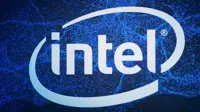Intel pulls out of Negroponte's "one-laptop-per-child" project
05 Jan 2008
Citing "philosophical" differences, Intel Corp has pulled out of Nicholas Negroponte's 'one laptop per child' (OLPC) project, currently undergoing trials in Nigeria and Uruguay.
The chipmaker has withdrawn its funding and technical help from the project, which aims to put $100-laptops in the hand of children as an educational tool in developing countries.
Intel was among the 11 IT companies including Red Hat, Linux and Google to support the ambitious project, part of a project at Massachusetts Institute of Technology's Media Lab, which Negroponte launched in 2004 to bring low-cost computers in the hands of children in developing countries.
However, few governments were willing to buy these laptops in the volumes that the Negroponte hoped would make the project viable. Accordingly the laptop sells at $188 in the countries it is undergoing trials.
Known as the XO, the Linux-based laptop is powered by a 366-megahertz processor from Intel's arch-rival Advanced Micro Devices. Intel teamed up for the project in July 2007 (See: Negropnonte's $100-laptop project launches 2007) to work on a version of the project's laptop that used an Intel chip. Many expected this machine to be unveiled at the CES technology fair which opens in Las Vegas on 5 January.
An Intel spokesman said the decision to end its involvement was prompted by the OLPC organisation asking it to stop backing rival low-cost laptops. Interestingly, Intel is said to have been backing its own low-cost laptop, the Classmate, in many markets that the OLPC was interested.
Before Intel joined the ambitious project, Negroponte had criticised the firm for its attempts to undermine the project by selling Classmate at a loss to make the XO laptop less attractive.
OLPC says it has been able to launch the OLPC programmes in Haiti, Rwanda, Ethiopia, Cambodia, Mongolia, and Afghanistan.





.webp)


















